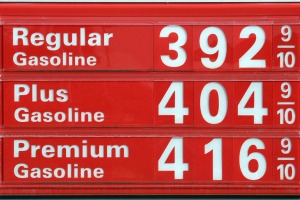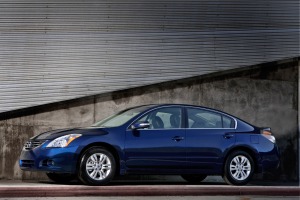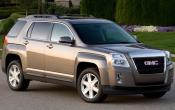To Save Money on Gas, Stop Buying Premium
Modern Engines Make Allowances for Lower Octane

The average national retail price of premium self-serve gasoline currently is topping $3.78 a gallon. Fuel costs are leaping by nearly 40 cents a month. And drivers who are pumping premium are undoubtedly asking themselves if they can safely switch to regular, which is about 20 cents a gallon cheaper. The answer is yes.
You'll find in today's automobiles that advances in engine technology mean that even if the owner's manual recommends premium gasoline, the car will typically run on regular without knocking. Its performance will suffer only slightly: Perhaps it might be a half-second slower from zero to 60 mph. The key for drivers is to know whether premium gasoline is merely recommended or if it's required.
Edmunds has compiled a couple of lists that include vehicles from the 2008-'12 model years, and they will tell you whether your car falls into the category of premium "recommended" or premium "required." If your vehicle is on the "recommended" list, you're OK to switch to regular unleaded gasoline. If, on the other hand, your owner's manual says that your car requires premium fuel, then you should run premium fuel.
If you're still in doubt about switching to a lower-octane fuel, here's a deeper explanation of why the change is unlikely to hurt your car.
In the bad old days, engines could not adjust to fuels with varying octane ratings. Use the wrong fuel and the engine would knock audibly as the fuel combustion became uncontrolled. Knock is an engine phenomenon that can damage internal engine components over time.
Today, engine control systems can compensate for low octane by monitoring knock activity and adjusting ignition advance to quell the knock. This sophisticated electronic capability effectively gives drivers more flexibility in the grade of fuels that they can safely use.
Compared to premium gasoline, lower-octane fuels don't allow the engine to run as much ignition advance during situations where lots of throttle might be used. More ignition advance allows the engine to make more power during these conditions. Since the engine doesn't make quite as much power with lower-octane fuels, this translates into slower acceleration in cars for which premium fuel is recommended. The performance loss is especially noticeable in turbocharged gasoline engines.
The performance loss, however, is something you will only notice if you have a heavy throttle foot. In part-throttle conditions, you can achieve full ignition advance with no knock, regardless of whether you use premium or regular-grade fuel.
It's a different story for a car whose engine requires premium fuel. The car will still run and drive on regular fuel in a pinch — but you shouldn't make a habit out of it. The fuel's lower octane can result in elevated exhaust-gas temperatures and possible knocking, both of which can adversely affect the engine's health. Running regular-grade fuel in a car that requires premium might sound like a good way to shave a car's running costs, but the short-term savings won't come close to offsetting the bill of a damaged engine.
For those driving "recommended premium" cars, however, it's just a matter of driving gently and never using wide-open throttle. Do that and you might never feel the difference between using premium and regular grade gasoline — and neither will your car.









